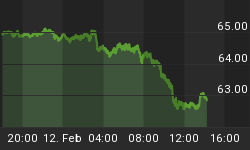It's the same story pretty much everywhere: Cities and states promised ridiculously generous (by today's standards) pensions to teachers, cops and firefighters, failed to sufficiently fund the plans and invested the money they did have very badly. And now the weight of the resulting unfunded obligations are crushing not just plan recipients but entire communities. Here's a representative case:
Oregon PERS unfunded liability swells to $21 billion
(KTVZ) - This week, Oregon's Public Employee Retirement System Board received an earnings report on the status of the PERS fund investment. The report said Oregon's PERS fund fell by 4 percent in 2015, a loss of nearly $3 billion -- and a Central Oregon lawmaker said that means major reforms are more urgent than ever.
"The blow to PERS from the Moro court case left Oregon with an additional $5 billion in unfunded liability," Sen. Tim Knopp, R-Bend, said Tuesday. "Now PERS is an additional $8 billion short of its target."
In that ruling nearly a year ago, the state Supreme Court overturned the vast majority of the PERS reform cost-saving provisions enacted by the 2013 Legislature.
The current unfunded PERS liability now exceeds $21 billion, up from $18 billion last year, he noted.
PERS Communications Director David Crossley said while the PERS fund earned just over 2 percent last year, it did not achieve the "assumed savings rate" of 7.75 percent, so the liability increased by about $3 billion.
He noted that PERS had positive earnings, but lost value because it pays out about $3.5 billion in benefits a year.
PERS rates for school districts and local governments will rise in July 2017, Knopp said, forcing school districts to lay off teachers, reduce school days, increase class sizes, and cut programs like art and PE. Local governments will also have to make cuts to public safety and other critical services.
This combination of worse-than-expected investment returns and legal barriers to cost savings is playing out across the country. See Fitch downgrades Chicago after "worst possible outcome" in state supreme court pension reform bid.
What follows -- "...forcing school districts to lay off teachers, reduce school days, increase class sizes, and cut programs like art and PE. Local governments will also have to make cuts to public safety and other critical services" -- is also playing out in most states and cities.
And this, remember, is at the tail end of an epic bull market in financial assets. If pension plans aren't fully funded now, they'll fall into an abyss in the coming correction.
The result: everyone gets poorer. Or more accurately, everyone discovers that they were never as rich as they thought they were, and that the down escalator they're on has a long way to go.
At the risk of belaboring the point, imploding pensions, like most other modern problems, can be traced back to easy money. Put a monetary printing press in the hands of government and the resulting corruption flows from Washington outward to every state capital and mayor's office. With interest rates artificially low and inflation artificially high, generating 8% returns as far as the eye can see looks not just possible, but easy. So promising benefits based on high rates of return seems reasonable to elected officials anxious to buy labor peace. And once the Ponzi scheme is in place, there's no way to turn it off without creating chaos.
The only solution (again at the risk of repetition) is to take the easy money program to its logical extreme and devalue the dollar by an amount large enough to make nominal pension benefits affordable. That's functionally the same as honestly cutting benefits and will impoverish everyone who doesn't own lots of real assets, but it will be easier to hide.
















